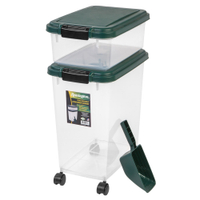How to keep opossums away – 5 humane hacks approved by experts
These humane hacks for keeping opossums away free your yard from pests without damaging nature
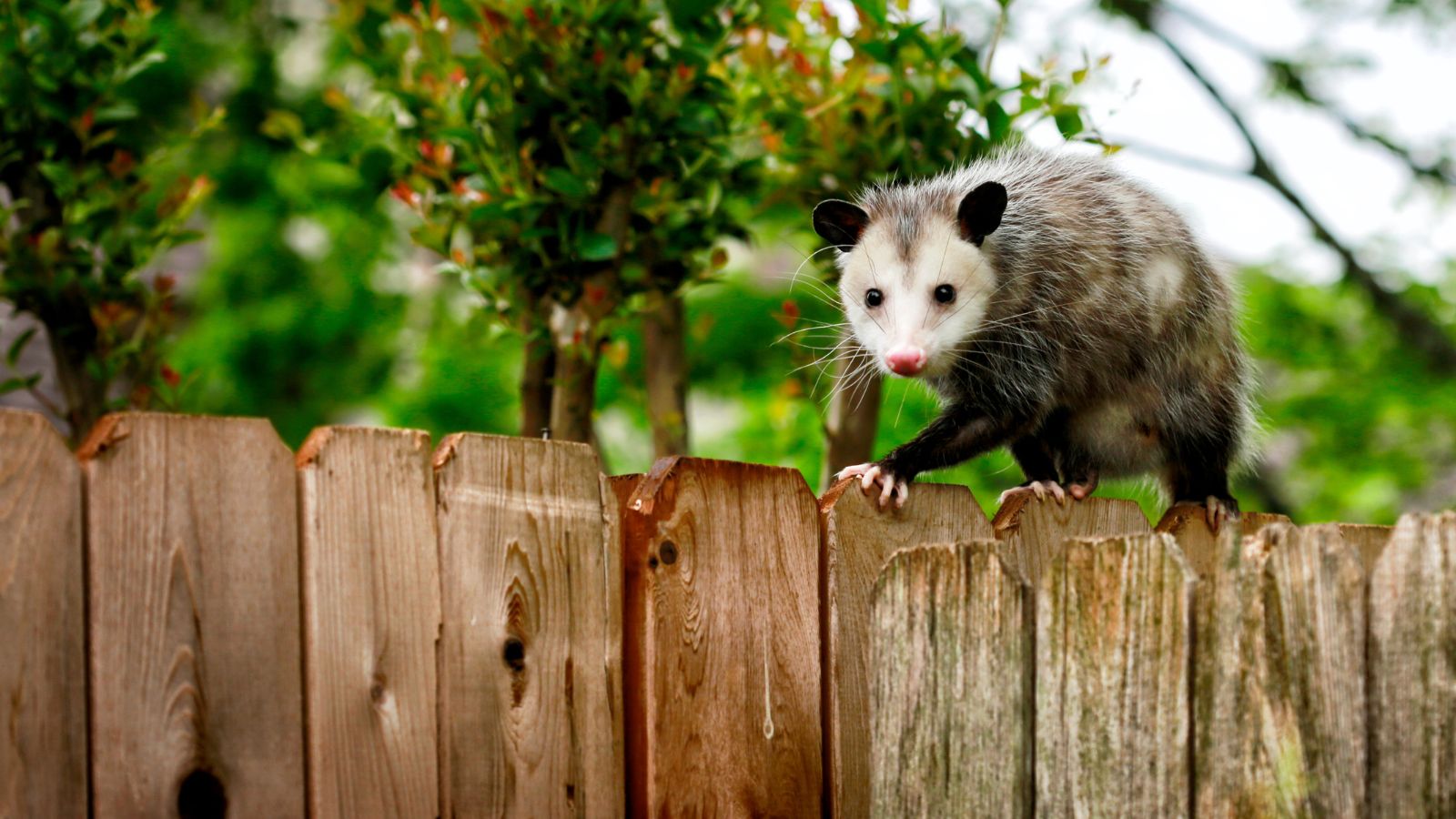

When opossums wander into your yard, they can cause all sorts of havoc, from loud noise and damage to carrying diseases and pests that could harm your pets.
It is useful, therefore, to have some humane hacks on hand to help keep opossums away from your land without damaging the environment. This will also mean you're less likely to make the common pest control mistakes often made when dealing with unwanted visitors.
We spoke to pest control experts to learn some humane ways to keep these cute but destructive pests away.
How to keep opossums away
‘Opossums in the US come in a couple of types: the common opossums down south and Virginia opossums up north. And while there are rumors they carry a multitude of diseases, most notably rabies, this is largely a myth. However, some do carry leptospirosis – so a tad of caution never hurts,’ begins Alex van der Walt, vet assistant at Animals around the Globe. ‘But remember, not every opossum is a carrier, and it's good to be aware but not overly anxious.
‘In the grand scheme of things, while opossums can occasionally be a nuisance, they also play a vital role in our ecosystem. They feed on harmful pests and ticks, making our environment cleaner. So, while keeping them at bay is understandable, it's always crucial to remember they're just another cog in the vast wheel of nature.’
1. Keep your yard free from trash
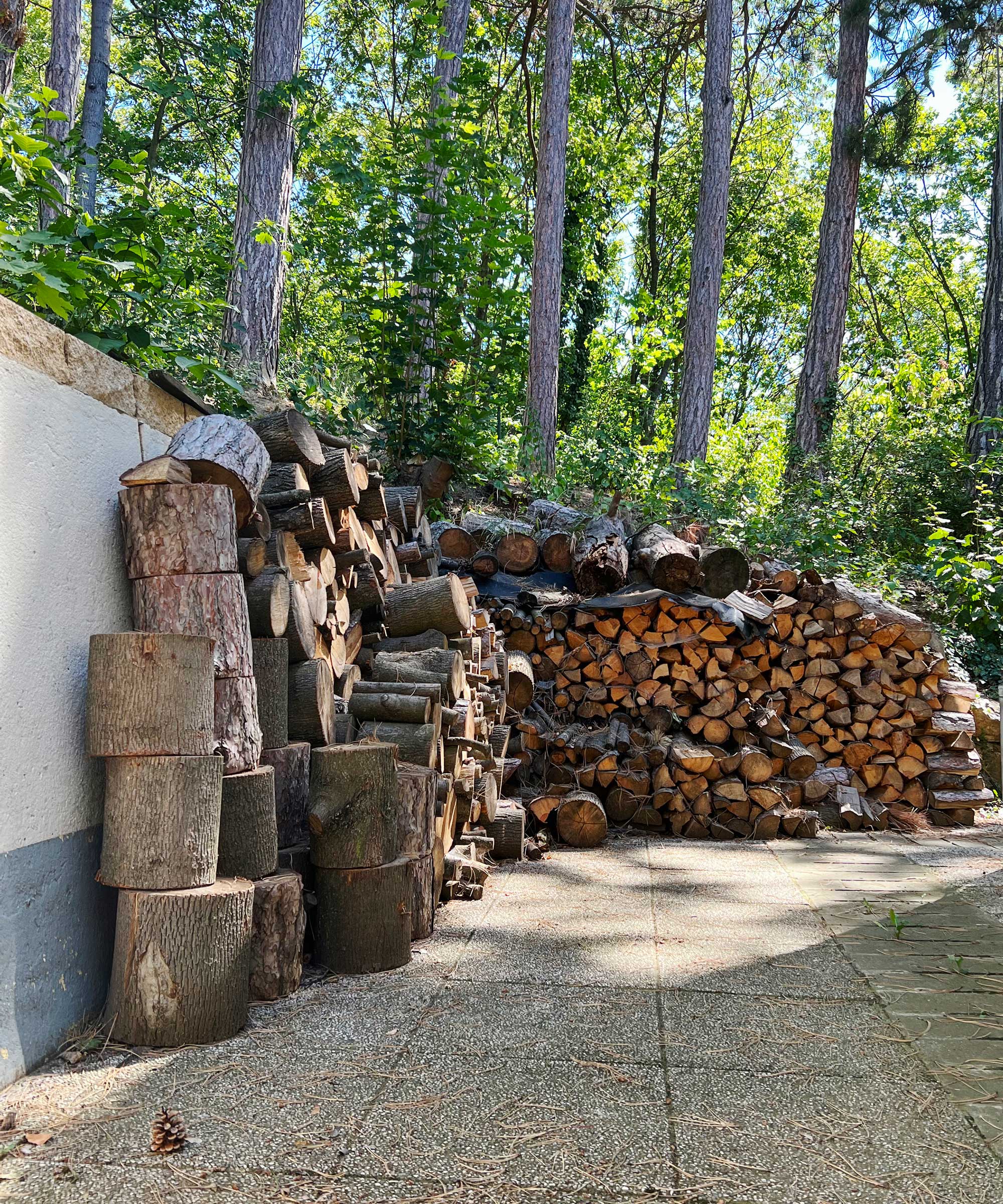
Like many animals, opossums are attracted to places where they can find easy food and shelter. Opossums are omnivorous and will eat just about anything, so be sure to keep your yard free of any garbage or food scraps, suggests Meg Pearson, pest expert and training manager at Critter Control.
This is easily achievable with some quick and frequent backyard cleaning and keeping your trash bins contained with a lid on.

Meg Pearson works at humane wildlife removal service Critter Control, and 2023 marks the company’s 40th anniversary resolving wildlife and pest issues for customers.
2. Use enclosed bird feeders
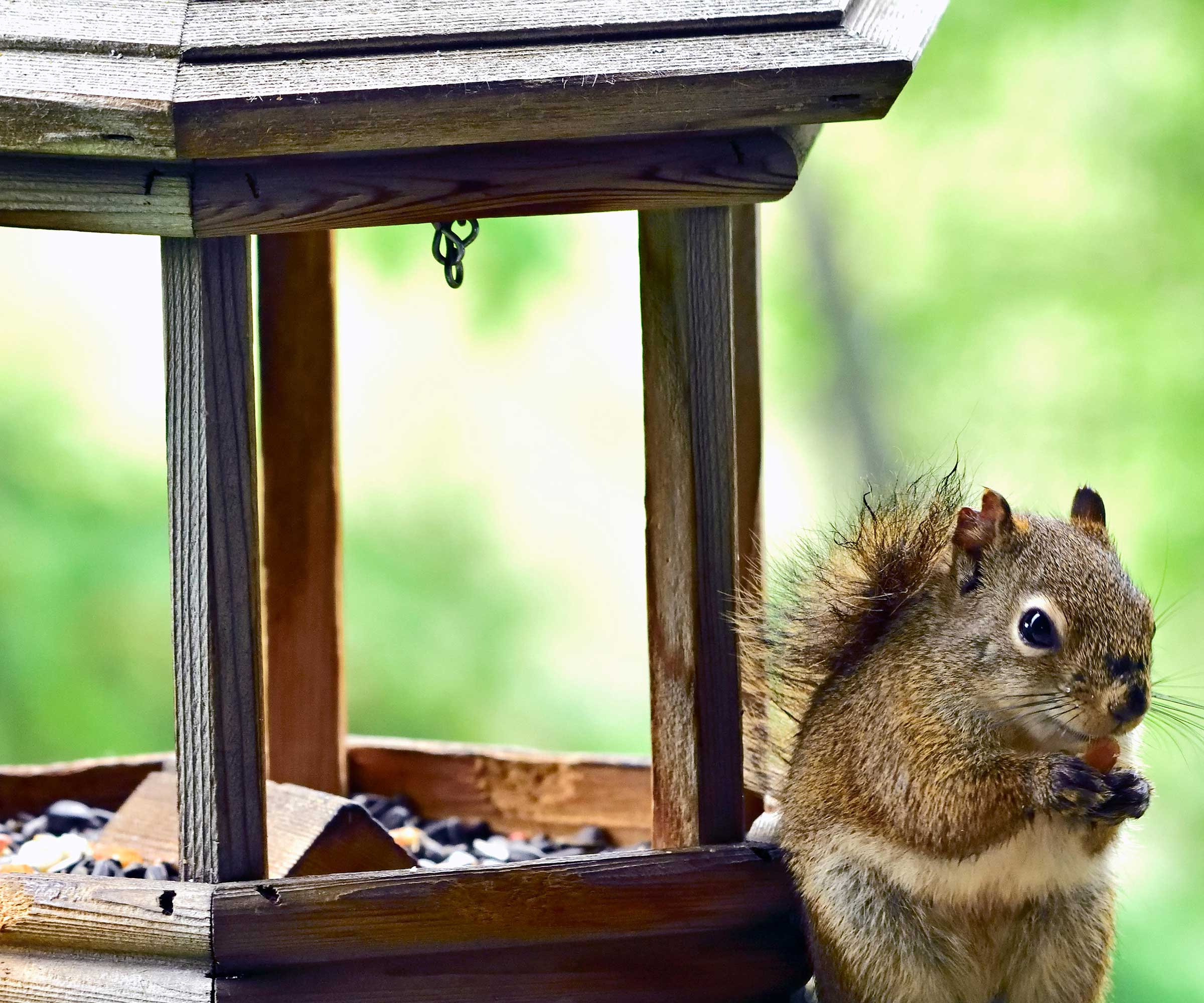
Bird feeders are great additions to your garden to help the littlest of animals find comfort, but they are also one of the biggest drawers for pests – something you will be aware of if you have ever tried to keep squirrels away from bird feeders.
Being omnivorous, opossums are also drawn to bird seed that has fallen on the ground, so it is important to know where to hang your bird feeder to keep them out of reach of pests and prevent spillage, says Jamie Nichols, senior service center manager at Arrow Exterminators:
‘In most cases eliminating or reducing food sources will help move unwanted animals away,’ he says.

Jamie is the senior services center manager at Arrow Exterminators, a residential, family-owned pest control service established in 1964. Arrow is proud to be QualityPro Certified by the National Pest Management Association, a third-party verified certification earned by less than 3% of pest control companies in the US.
3. Deter with motion-activated sprinklers
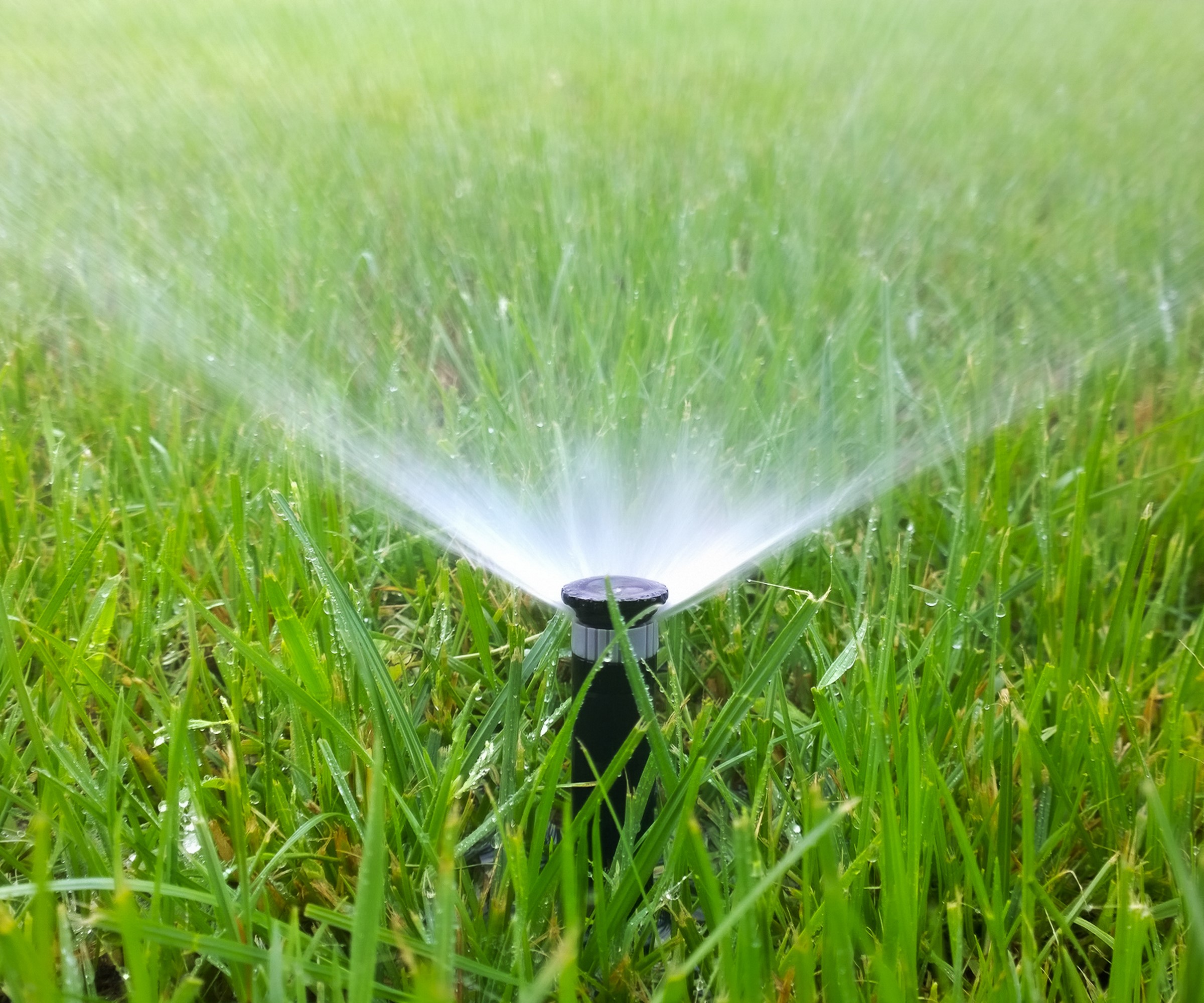
Physical deterrents are extremely effective in keeping pests like opossums away from your home and yard. For a humane option, Bryan Clayron, CEO at GreenPal, recommends trying an automatic sprinkler system:
‘This is where technology meets old-school pest deterrence. And, most people don't know this, but it's an absolute gem,’ he says.
‘These sprinklers detect movement (like an opossum sauntering into your garden) and give the critter a gentle, harmless spray of water. It's unexpected, slightly annoying for the opossum, but completely humane.’ This approach also has the benefit of working for a few pests, such as getting rid of chipmunks and getting rid of raccoons.
‘Over time, our furry friends learn that your yard might not be the best stomping ground.’
4. Use scent
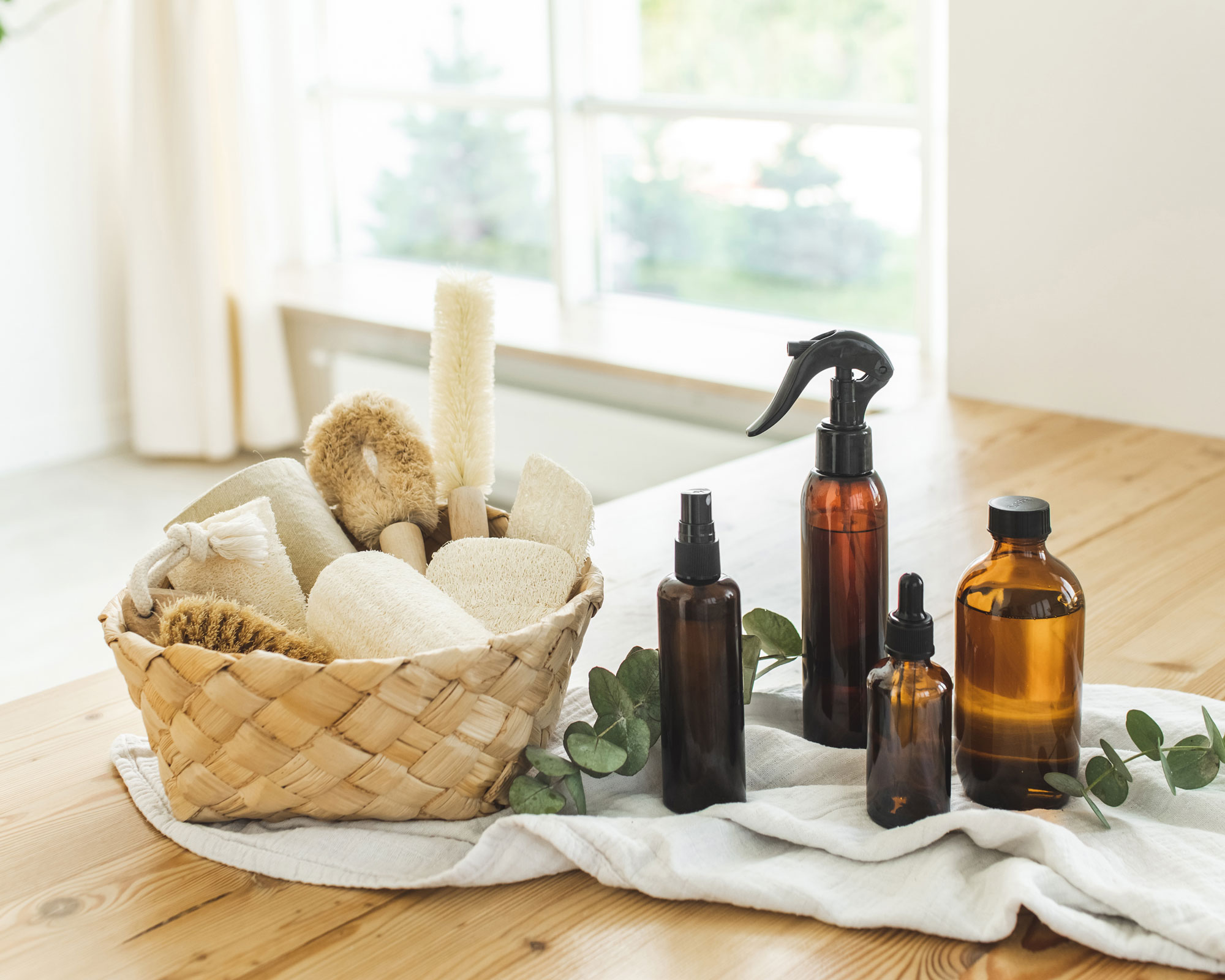
We have all used bug sprays to help keep tiny pests at bay, but a similar scent deterrent can be used to keep opossums away, shares Alex van der Walt, vet assistant at Animals Around the Globe:
‘Peppermint oil or even a sprinkle of cayenne pepper around the yard can act as a deterrent. I would be cautious about using ammonia; it's not the kindest method.’
All you have to do is spray the scent around your yard and home boundary and reapply every few days or after rain. This, combined with removing food sources, should help keep them at bay.
5. Keep pet food secure indoors

Pet food should never be left outside if you don't want a whole host of pests to stop by for dinner, Alex van der Walt, vet assistant at Animals around the Globe warns. ‘Securing pet food is essential. Opossums are crafty, and an open food bowl is an invitation they rarely decline.
‘Keep pet food indoors, with any spare supply locked away in sealed home storage, and eliminate potential shelter spaces and ensure all entry points to the home are sealed.’
Remington 3-Piece Airtight Pet Food Container Combo, Green | $34.99 at Walmart
This plastic container for pet food is airtight and has wheels for easy transportation around the home. It comes with a two-cup scoop.
FAQs
Does Vicks repel opossums?
Given its strong peppermint scent, Vicks can be a useful deterrent for opossums. It is worth noting that this can be an expensive undertaking, however, and it can be cheaper and more efficient to use a peppermint essential oil mixed into a spray.
What sounds are opossums afraid of?
If you are looking to scare opossums away humanely without hurting them, you can play some loud noises such as animal sounds to help frighten them off. You can also consider an ultrasonic device that emits sound at a frequency adults cannot hear to keep all sorts of pests away from your yard without having to withstand any noise yourself.
Opossums that pass through your yard are usually no issue unless you have pets that wander freely. It is important to ensure opossums cannot get into your home or garage, however, to avoid illnesses or other pests, such as fleas, says Meg Pearson, pest expert.
‘The best way to keep opossums from getting into your home is to ensure there are no possible entry points for an opossum to enter your home,’ she explains. ‘This can be done by conducting routine inspections of your home’s exterior and sealing up any openings. Pay particular attention to foundation vents, roof returns, and roof vents.’
Sign up to the Homes & Gardens newsletter
Design expertise in your inbox – from inspiring decorating ideas and beautiful celebrity homes to practical gardening advice and shopping round-ups.

Chiana has been at Homes & Gardens for two years and is our resident 'queen' of non-toxic living. She spends most of her time producing content for the Solved section of the website, helping readers get the most out of their homes through clever decluttering, cleaning, and tidying tips. She was named one of Fixr's top home improvement journalists in 2024.
-
 Gwyneth Paltrow's quiet luxury kitchen is so beautiful, we almost overlooked her ultra-smart cabinets – they make the use of 'every inch' of storage space
Gwyneth Paltrow's quiet luxury kitchen is so beautiful, we almost overlooked her ultra-smart cabinets – they make the use of 'every inch' of storage spaceThe Goop founder makes use of dead space in her kitchen with customized cabinetry that reaches to the ceiling, providing ample storage
By Hannah Ziegler
-
 Martha Stewart's intelligent cabinets 'take every inch into consideration' – their 'visually light' style will solve your small kitchen storage problems
Martha Stewart's intelligent cabinets 'take every inch into consideration' – their 'visually light' style will solve your small kitchen storage problems'Every kitchen can be beautiful and functional, no matter what the size': 9 years since sharing her clever storage, Martha's cabinets are just as beautiful
By Megan Slack
